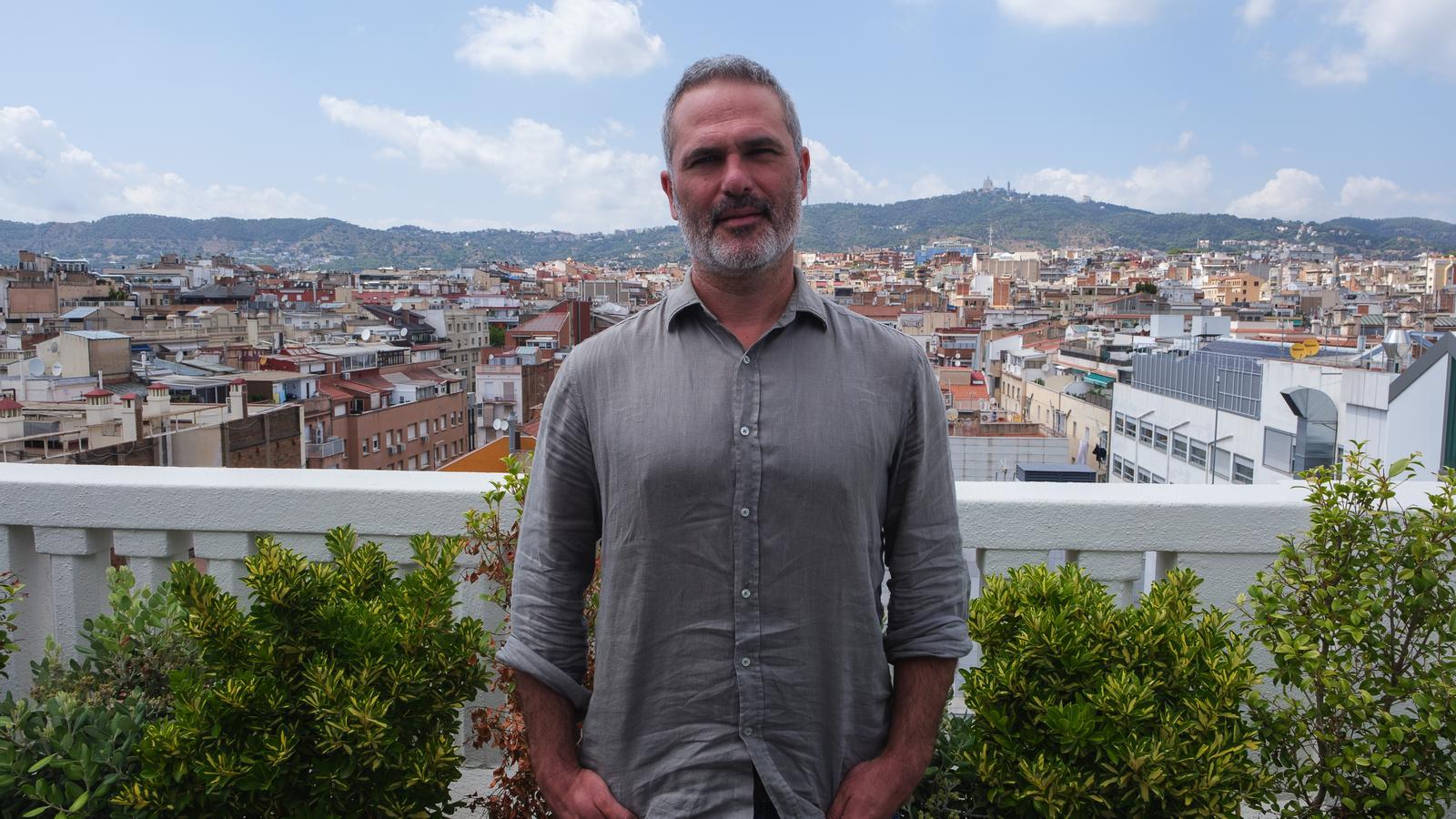"Without the Barça shirt, maybe they would have killed that boy."
ARA speaks with Xavier Aldekoa, a journalist specializing in the African continent who has published the book "África redonda" (Round Africa).


BarcelonaJournalist Xavier Aldekoa (Barcelona, 1981) was hiding with 4,000 other people in a church in Buca, a small town in the Central African Republic. They were trying to protect themselves from the civil war. The forest around the church was full of corpses, and Aldekoa was trying to interview one of the hiding teenagers. The background noise from the church made it difficult to have an intelligible conversation, so they went outside. Less than 50 meters away, there were some people who needed some fresh air after days without seeing the blue sky. It was a relatively safe place compared to the danger beyond. But that safety quickly vanished.
"Two drunken 14 or 15-year-old boys appeared with Kalashnikovs and started asking the boy I was with, pointing the gun at him, if he was Séléka [ethnic coalition of Muslim religious character in a country where 80% of the population is Christian]. They could have killed him without hesitation, there was a high degree of impunity," Aldekoa recalls during the interview with ARA. "But it just so happened that one of the Séléka He was wearing a Barça shirt with Messi's name on the back. I said, "Are you a Barça fan?" And I told him I was from Barcelona, from the place where the shirt I was wearing was. I was trying to create a connection and shift attention elsewhere. Things calmed down, which allowed the boy to return to the church. The coincidence of the Messi shirt saved him from a big risk; perhaps he would have been killed," he continues.
Aldekoa, Africa correspondent for The Vanguard, has just returned from a journalistic trip to Chad. He welcomes us to the Hotel Vincci Mae on Barcelona's Avinguda Diagonal to talk about his new book, Round Africa (Peninsula), which brings together opinion columns and reports in which, over the past few years, he has used sports, especially soccer, to explain an exceedingly complex and diverse continent. "It's a nice trick I like to play. Soccer can help people who aren't interested in, for example, the Central African Republic read about these topics," he believes.
Irrational passion
The boy's story Séléka Wearing Messi's shirt is a testament to the power football has in many parts of the African continent. Because then the same old people always say that football is just football. In Africa, there's a passion for European teams that a Westerner might consider irrational. Some people love and suffer for a team they've never seen a match. "It surprises me, fascinates me, and I don't understand it," Aldekoa admits. "On this last trip to Chad, I accompanied a nomadic family who are traveling north on camels. Chaibo, a 12-year-old boy from this family, told me he was a Barça fan, but he's never seen a Barça match. They support one team or another because of the colors or what they've heard. Oral communication is very important in nomadic communities, and being told that Barça plays very well or has a very good player already gives them a sense of belonging," he argues.
Aldekoa himself also feels this irrational passion for football. He has traveled 20 kilometers to get gasoline to power a generator that would allow him to watch a Barça match in a remote location. "Once I was reporting on jihadism in northern Mali, and it was the Champions League semi-finals [in 2010] between Barça and Inter, where Bojan's goal was disallowed. Driving along the road, I was worried because I realized I wouldn't be able to see the match, and suddenly we saw some Tuaregs about 200 meters from the road with their camels, and it seemed to me that a television was on. So I told the driver to stop. He warned me that the situation in the region was what it was and that it was already getting dark," he explains. "But I asked the Tuaregs if they would watch the game, they said yes, and that was it. The view was terrible. The signal was so bad that I didn't realize they had disallowed the goal until minutes later, when through the lines I saw that Barça was still overwhelmed by the result." For Aldekoa, it's a way of getting closer to home and making things happen.
Congo's sponsorship of Barça
The interview with Aldekoa was done on the same day as Barça announced its sponsorship of the Democratic Republic of Congo in exchange for more than 40 million euros over four years."It's not publicity, it's war. It's a war with Rwanda. Rwanda is now behind the M23 rebel group, which is occupying the Kivu region in eastern Congo. This confrontation, which has been going on for 30 years, is now being settled through publicity. It's the war of narrative," the journalist says. "A few years ago, Rwanda decided to present itself to the world as a modern country, with the power to sponsor European football teams [Arsenal, PSG, Bayern Munich, and, recently, Atlético Madrid], and Congo has now entered this game."
Eastern Congo is an area Aldekoa knows well because he has set foot there. "There I saw them tear the Visit Rwanda advertising off football shirts with a knife and stamp it on the ground," he says. "Rwanda is a dictatorship, but its people don't go hungry. It spends money positioning itself as a modern country because it's the Switzerland of Africa. Congo, in its attempt to copy this strategy, has many open seams: many poor people in the country, a war zone, no tourism. It's a very strange feeling to have a country trying to play war games based on our shirts," he says. According to the World Bank, 73% of Congolese people live in poverty. That's 76 million people.
